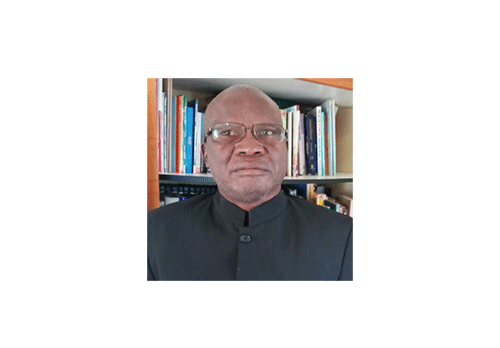“You have to see the people” has become a casual phrase used in many African countries in reference to employment seekers currying the favour of the panellists to secure the job applied for.
This means that before being shortlisted for an interview, one has to talk to every member on the panel.
The main purpose of the meeting before the interview is to solicit favour from the panellists, which is accompanied either by bribing the panellist or the so-called payment in kind.
Sometimes, employment seekers have to dig deeper into their pockets to secure jobs.
In some countries, members from other ethnic groups have their services terminated on what is termed national interest.
This mode of service termination is never explained to the employee; hence, the affected person will keep on guessing as to the nature and magnitude of the crime committed.
In Namibia, certain ethnic groups were appointed into positions immediately after Independence and later on consolidated themselves in those portfolios.
As years went on, these consolidations turned out to be impregnable walls, which became almost impossible to penetrate.
It is against this background in which every panel of interviews, the majority of members are from one ethnic group.
This scenario explains the reason why successful applicants always come from one ethnic group.
Unfortunately, these successful applicants are not picked according to merit but owe their nomination on ethnicity preference.
This further explains the reason for poor performance in many sectors of government and parastatals.
Political considerations
This has been a factor in terms of appointments in many cases. An applicant is picked based on political party membership even though the applicant cannot deliver the services.
In many so-called key positions, innocent applicants are always screened for any political crimes they might have committed.
For example, every applicant from Mamili area is a secessionist suspect although he or she has no such blood on his or her hands.
In some cases, “bottom power” is at work for one to be lifted upward politically. It is true that every nation should be security conscious, but wide allegations should be minimised at all costs for Namibians to enjoy the fruits of Independence and equal treatment in their land.
Ethnic appointments
These are very common in Namibia and some regions, it is easy to find the whole block of offices occupied and administered by one group of people from one ethnicity.
Although it is not proper to count the number of people from each ethnic grouping, this is always revealed by the language spoken or used in those offices.
Some panellists have the audacity of asking the applicants about their tribal orientations.
In addition, if the applicants are from the Zambezi region, they will be scorned about and even teased by being asked whether there are no employment opportunities in their region.
In extreme cases, the applicants will be castigated not to dare seek employment opportunities in the region where posts were advertised.
In a case where the good performing applicant is from the so-called undesirable ethnic group, the post is either frozen or advertised again, to enable the agent of Ministry to search around and get their desired candidate.
Even tertiary institutions, which are supposed to be objective and appoint members of staff who are supposed to deliver, are not spared from this scourge of ethnic appointments.
Candidates are simply approached and asked whether they like a particular post, while the ones who had applied for the same position are simply put aside.
Nepotistic promotions
It is an understatement to preach about equal and fair treatment regarding promotions in Namibia, whereas in many cases they are done on ethnicity basis.
The minority groups are promoted at the mercy of the large groups, despite the good performance of those from the former.
In this case, even if the applicant from the minority is promoted, the person will not have the overall say in the administration of his or her duties.
Even here, the applicants need to know that the bosses from the large ethnic group are monitoring and watching what the successful applicant is doing.
In most instances, the prospective applicant should find ways and means of climbing the promotional ladder.
Regional imbalance
Some regions seem to be more influential and powerful than others in terms of their relations with the central and national governments.
This is so because the more influential regions have more say in national government than others have and are in the habit of vetoing some national policies.
If indeed regions were treated equally, one finds it difficult to comprehend why others have leeway in dealing with national issues.
A good example is the audacity of other regions to set aside government policies in appointing employees entirely from their regions and despise those from other regions.
The One Namibia, One Nation dictum entails that every Namibian should apply for any position anywhere in the country and serve there without any restrictions.
Turning a blind eye
Despite these vices many Namibians go through, no mechanism to address these issues is in place and some lawmakers are part of such practices.
It is these injustices that usually propel law-abiding citizens to revolt against the authorities. In some cases, the least promoted and formerly enthusiastic citizens dampen their urge to work leading to poor service delivery.


